Authors:
(1) Corby Rosset, Microsoft Research and Correspondence to [email protected];
(2) Ching-An Cheng, Microsoft Research;
(3) Arindam Mitra, Microsoft Research;
(4) Michael Santacroce, Microsoft Research;
(5) Ahmed Awadallah, Microsoft Research and Correspondence to [email protected];
(6) Tengyang Xie, Microsoft Research and Correspondence to [email protected].
Table of Links
2.1 RLHF Based on Reward Models
2.2 RLHF with General Preferences
3 Direct Nash Optimization and 3.1 Derivation of Algorithm 1
4 Practical Algorithm – Iterative Contrastive Self-Improvement
5 Experiments and 5.1 Experimental Setup
Appendix
A Extension to Regularized Preferences
C Additional Experimental Details
B Detailed Proofs
In this section, we provide detailed proofs for our theoretical results. Note that, the definitions and assumptions presented heavily adopts the ideas related to version space and concentrability from reinforcement learning theory literature (esp., Xie et al., 2021, 2023). Nevertheless, the descriptions provided herein are intentionally simplified to elucidate the core insights into the algorithmic design. A full and exhaustive theoretical analysis falls outside the primary scope of this paper. We now make the following definitions and assumptions.
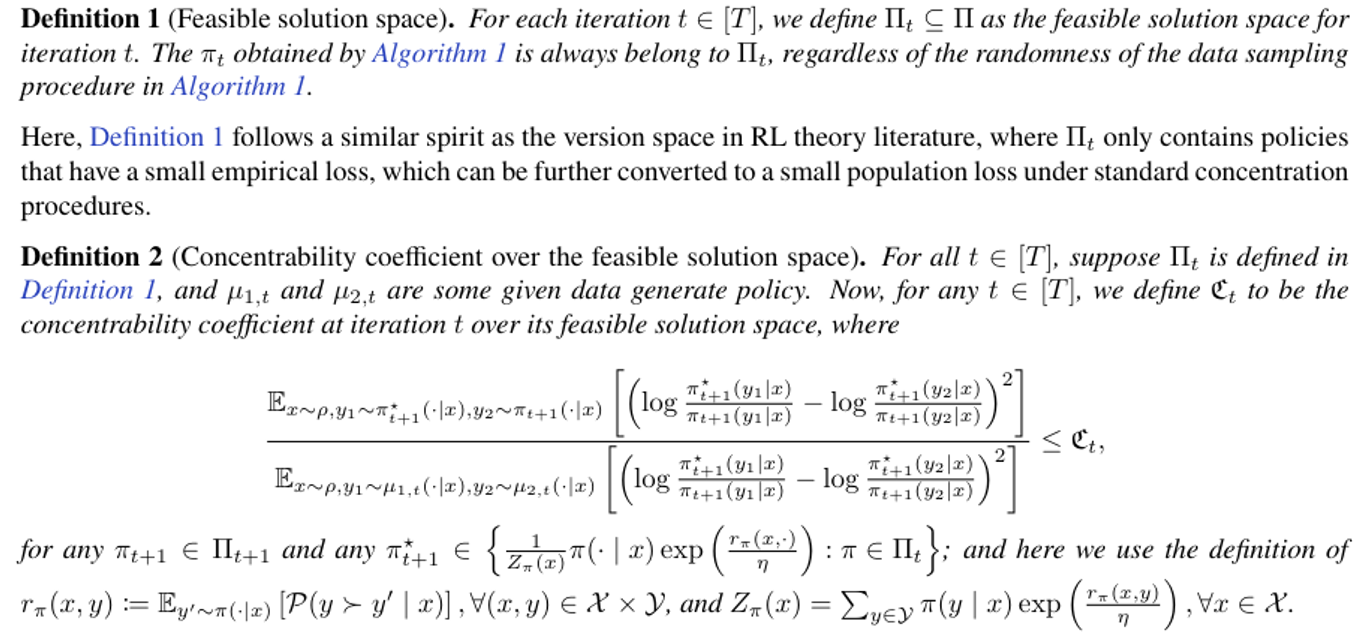
Definition 2 can be viewed as a natural extension of concentrability from the (offline) reinforcement learning literature to our setup.
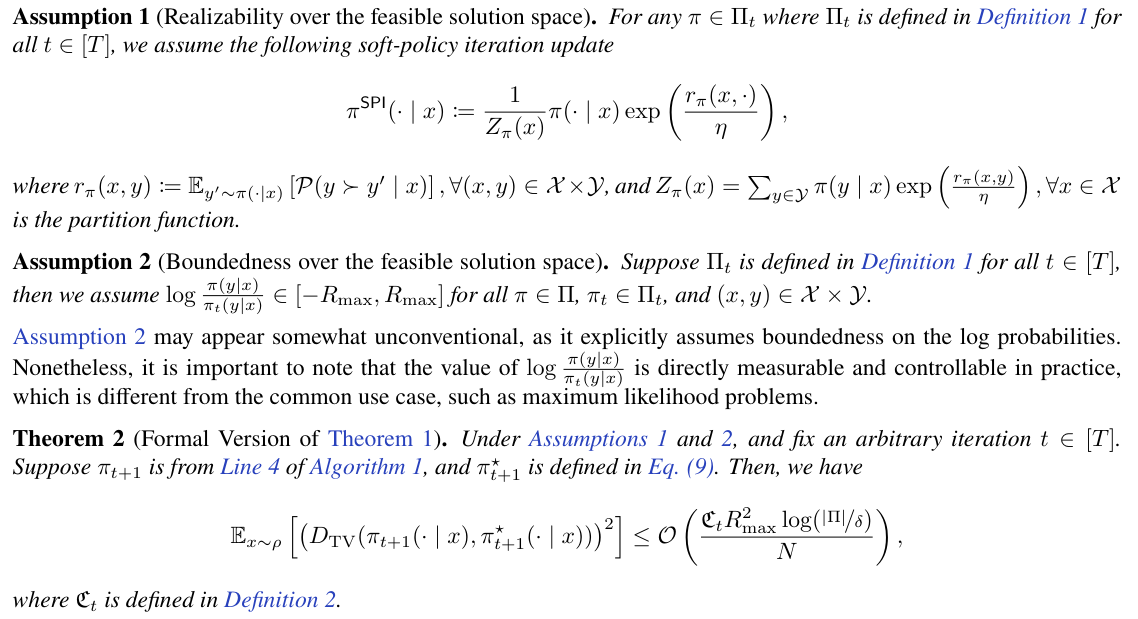
Proof of Theorem 2. We will now present the proof using the following two-step procedure.
Step 1: From regression with log loss to squared error bound. By standard results on the regression with the logarithmic loss, we know

Note that similar results could also apply beyond finite Π. For simplicity, we omit the detailed discussion in our paper. For more in-depth discussions about regression with the logarithmic loss, the reader can refer to, e.g., Foster and Krishnamurthy (2021).
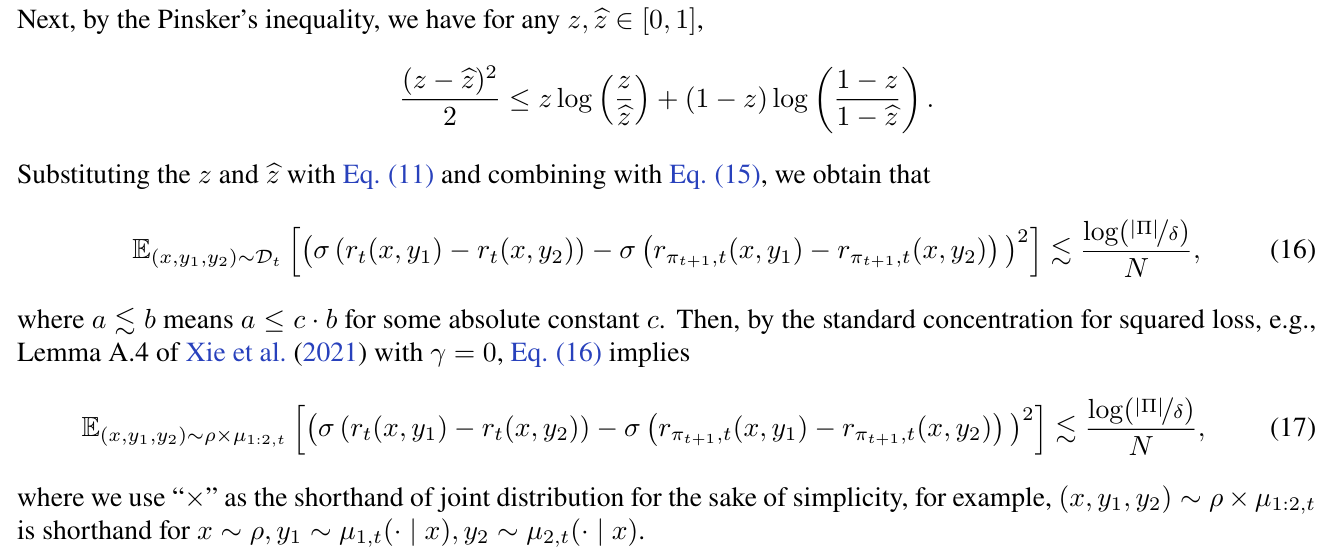
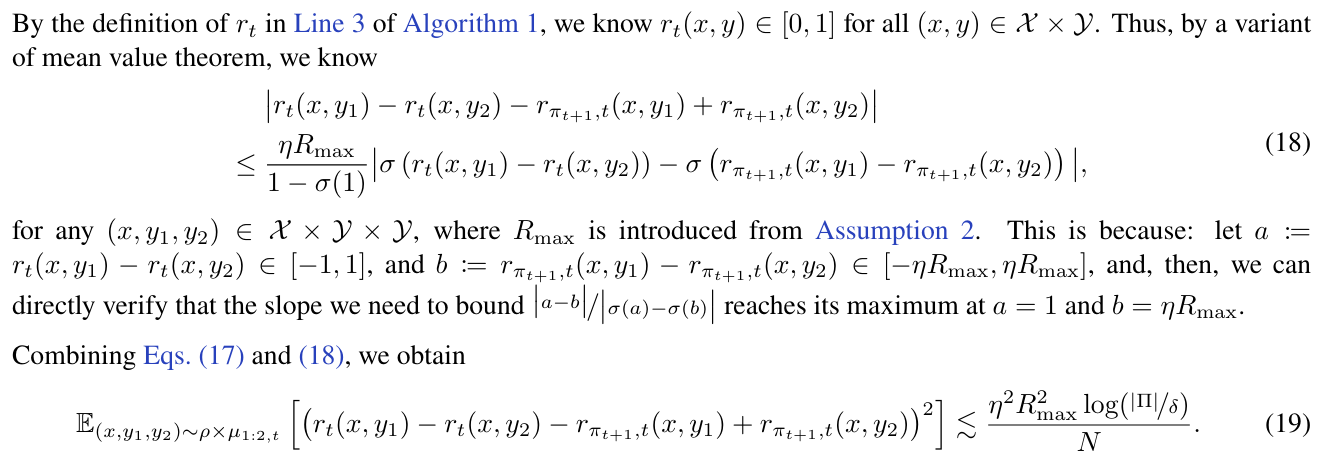
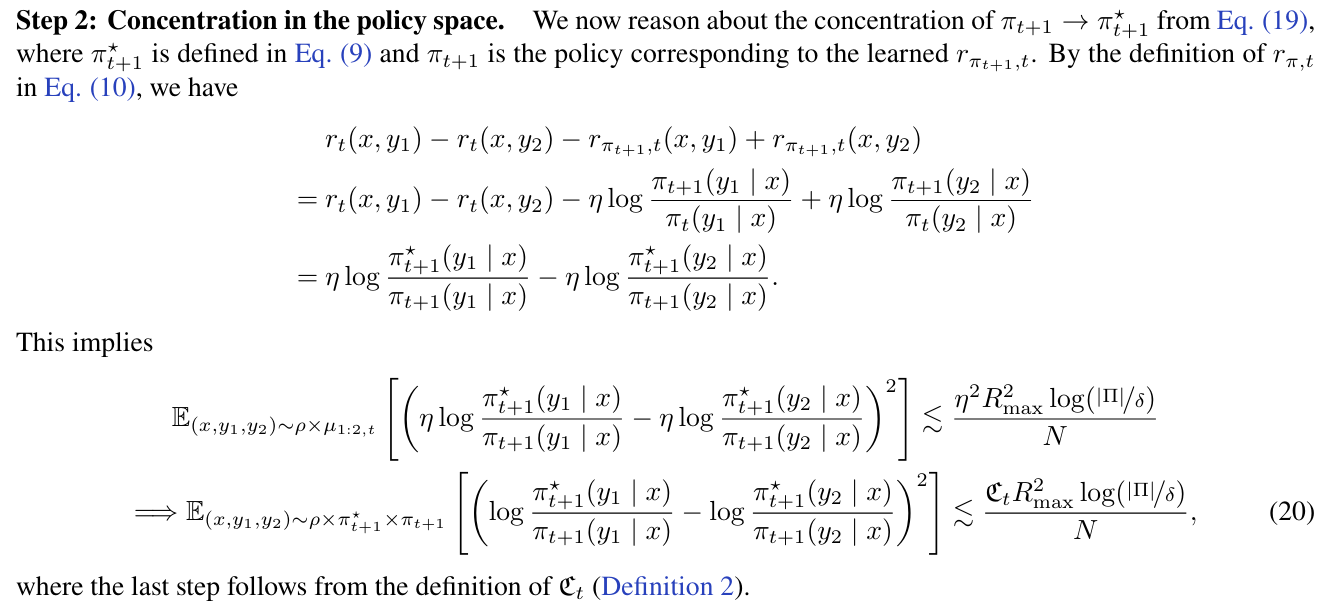
On the other hand, we have
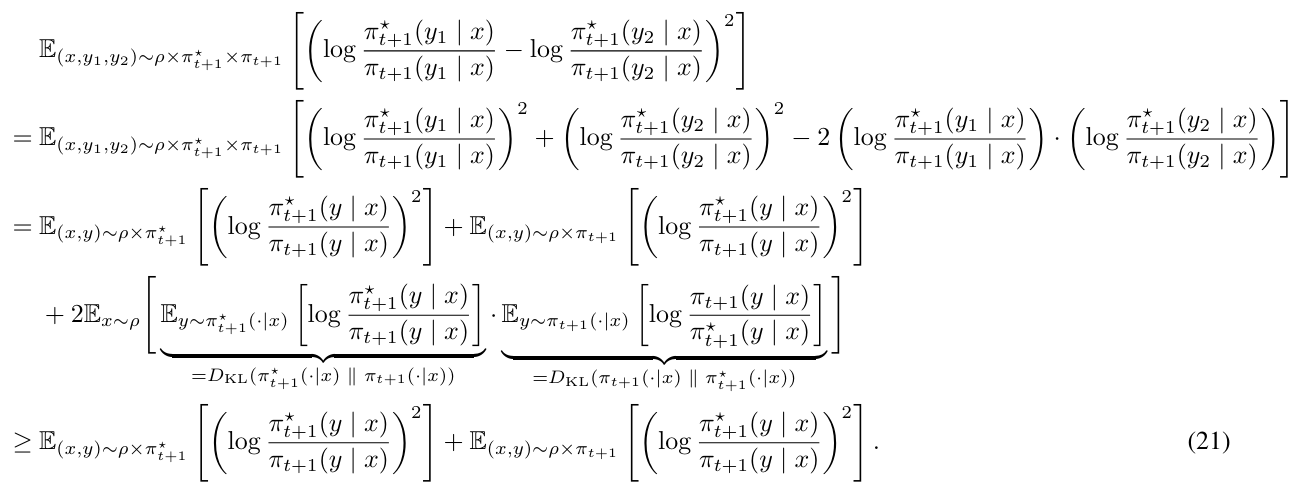

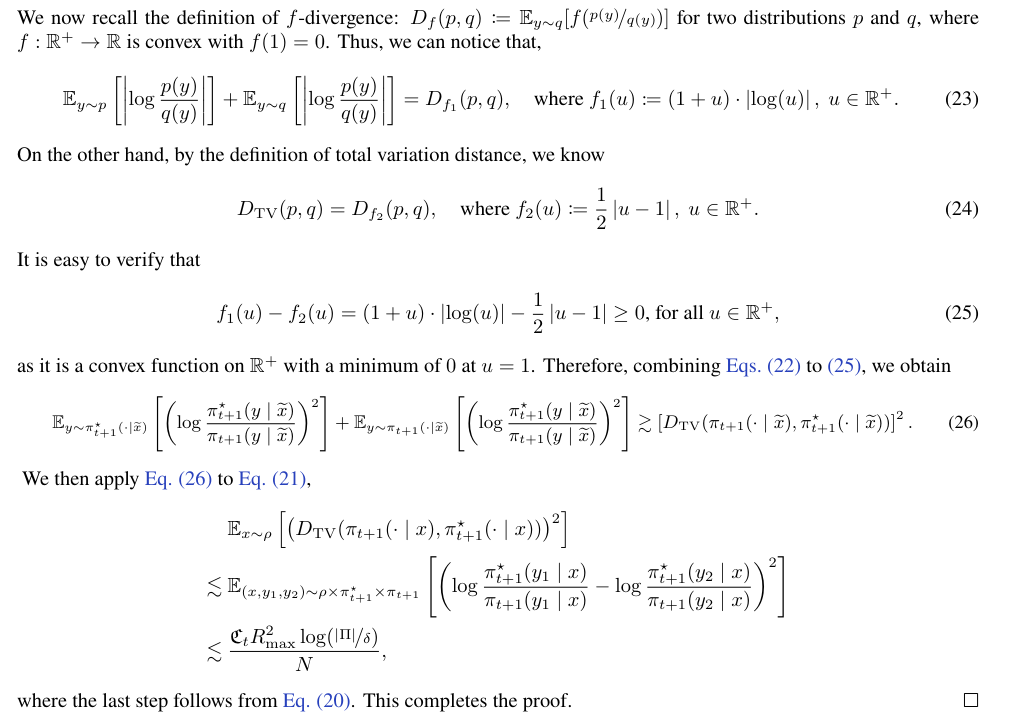
This paper is available on arxiv under CC BY 4.0 DEED license.

